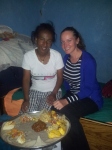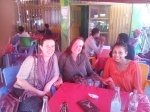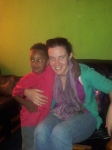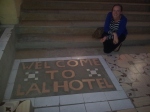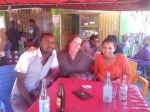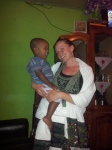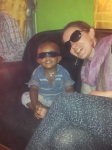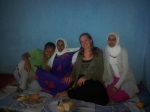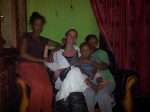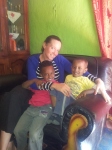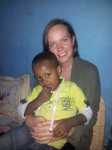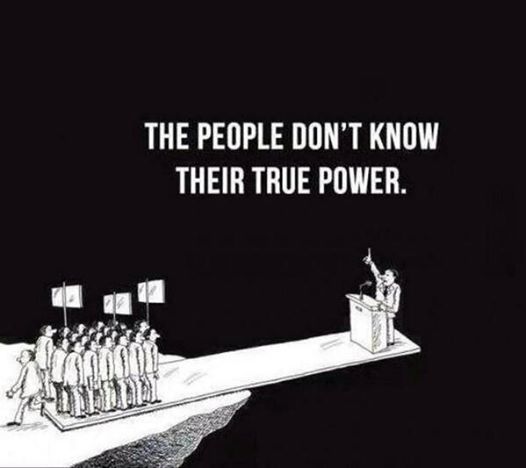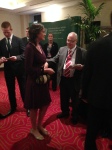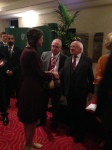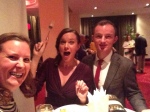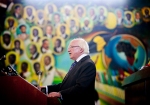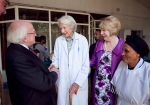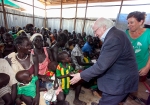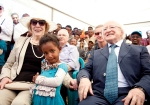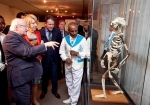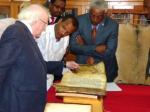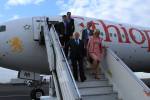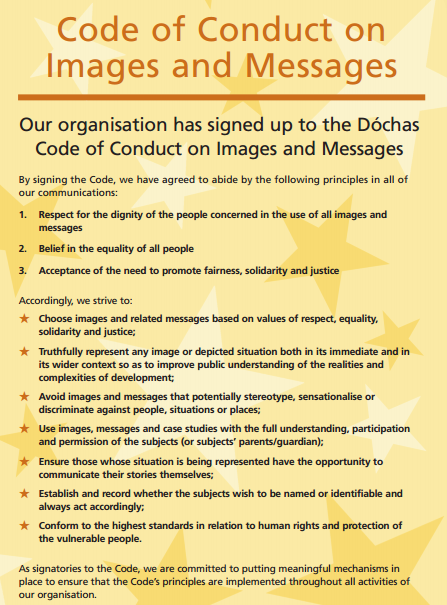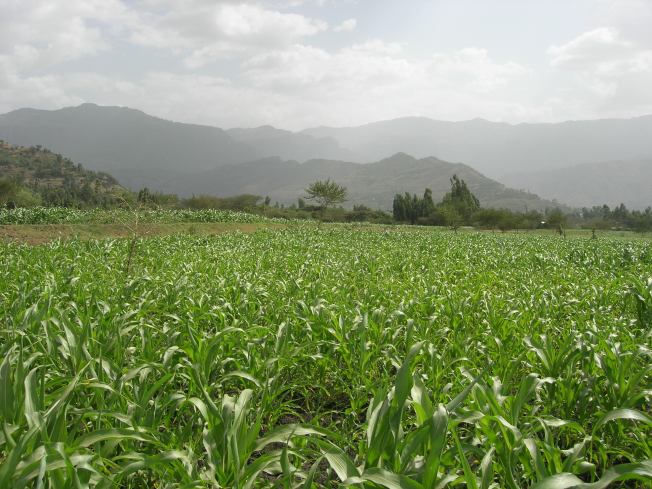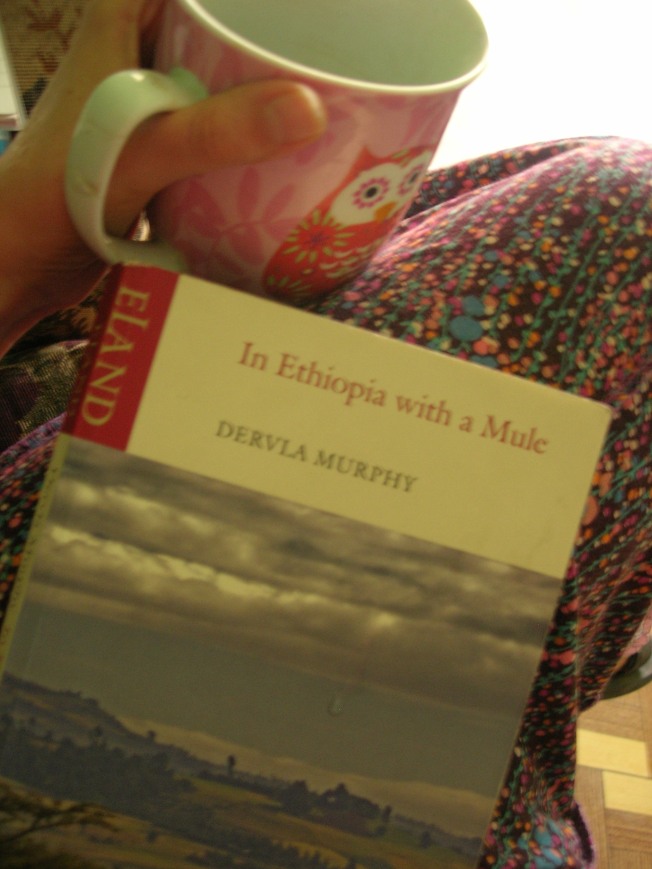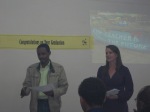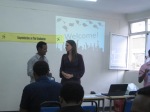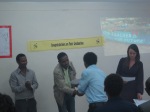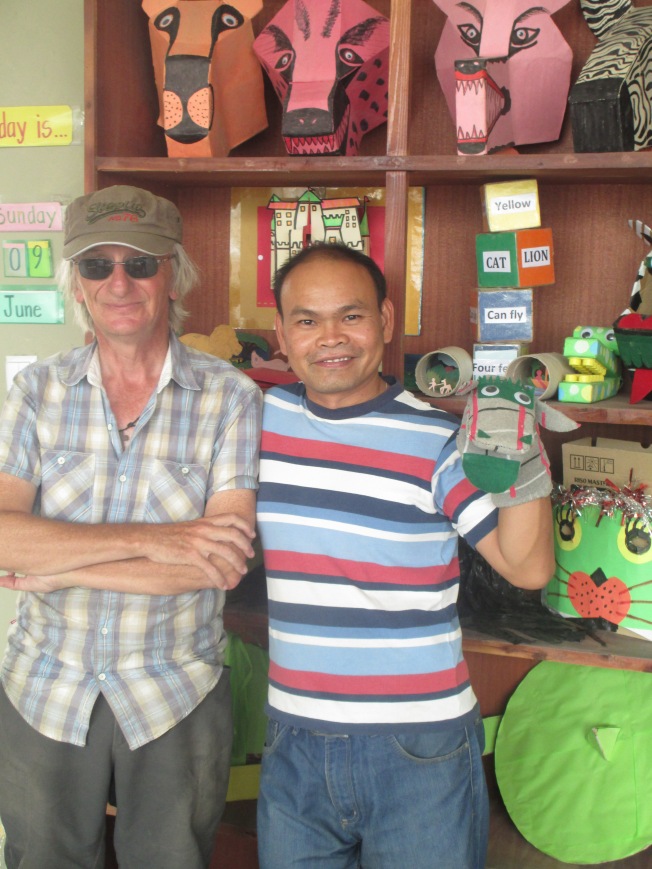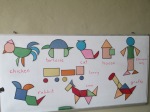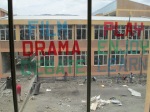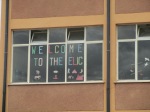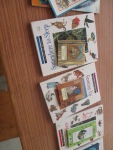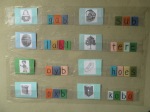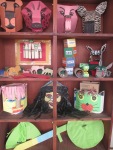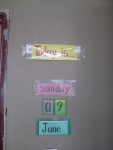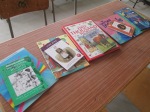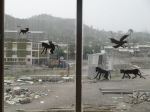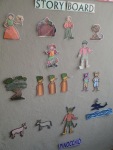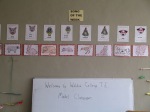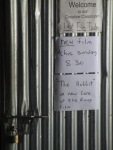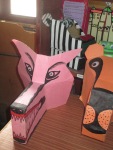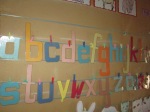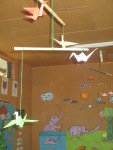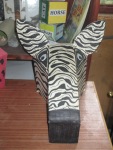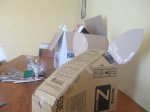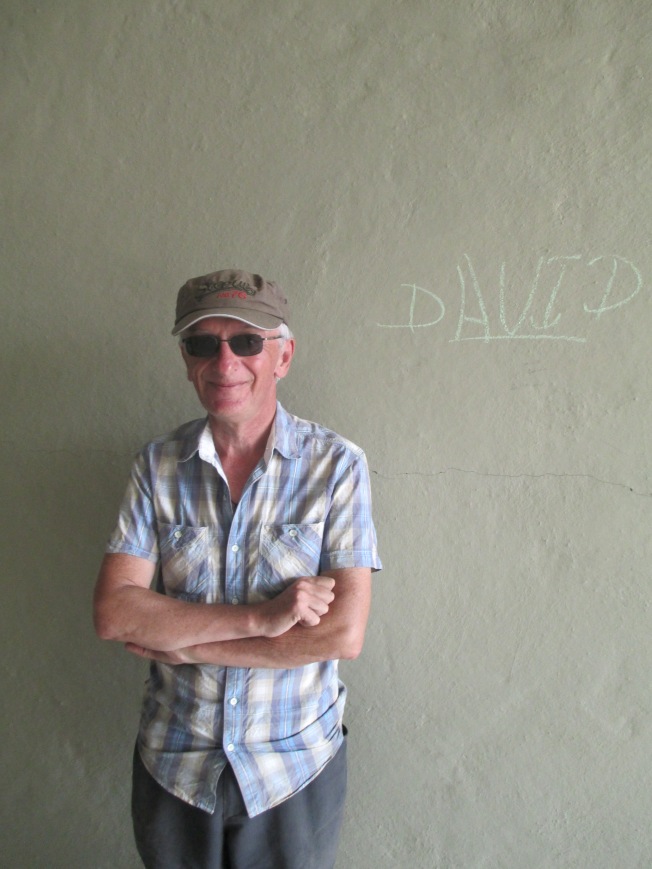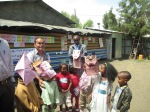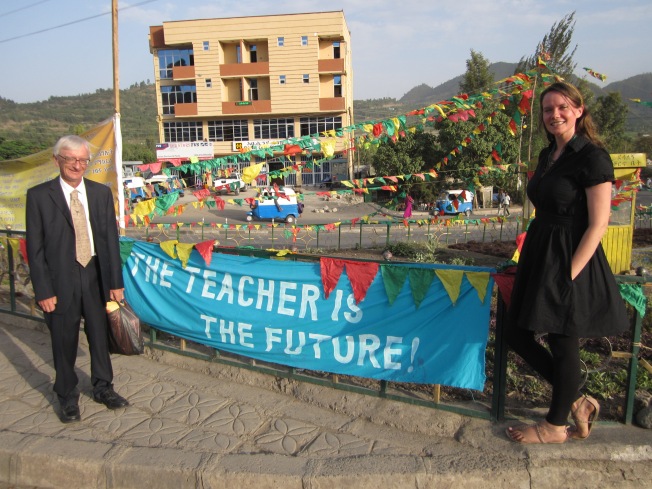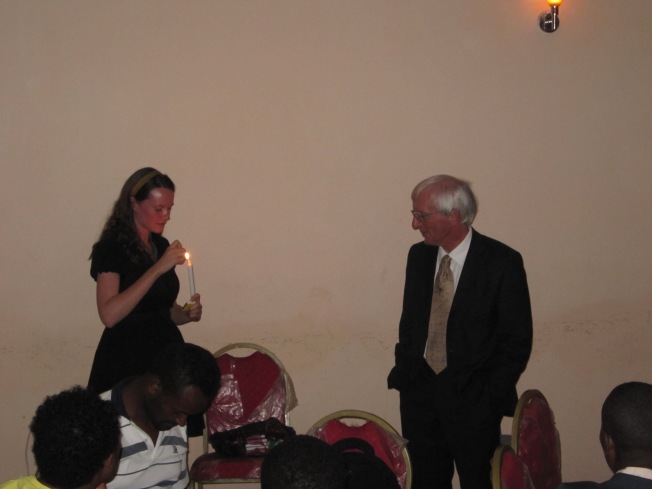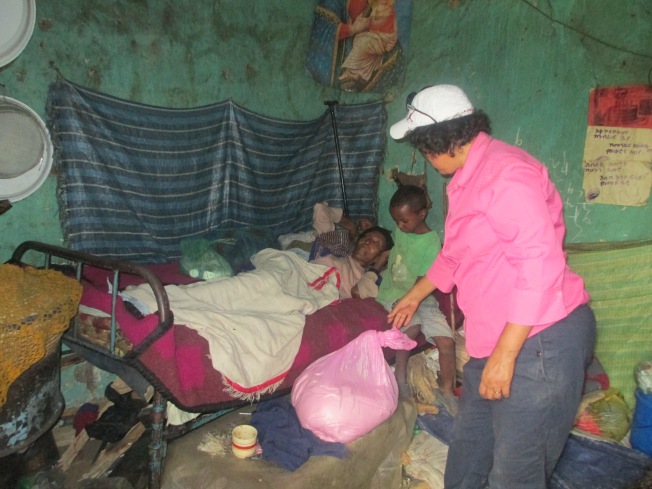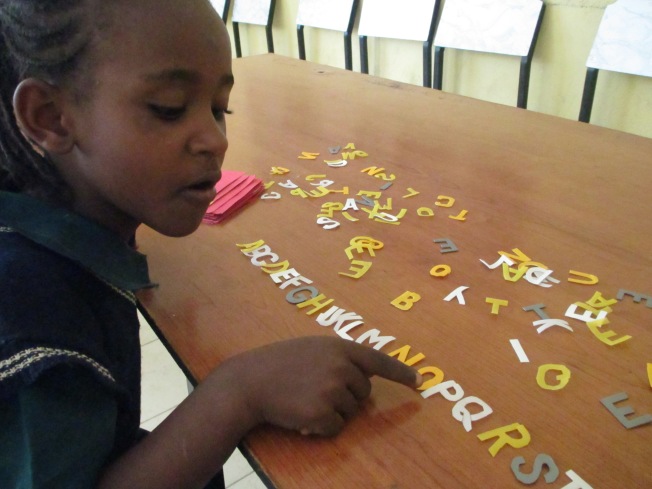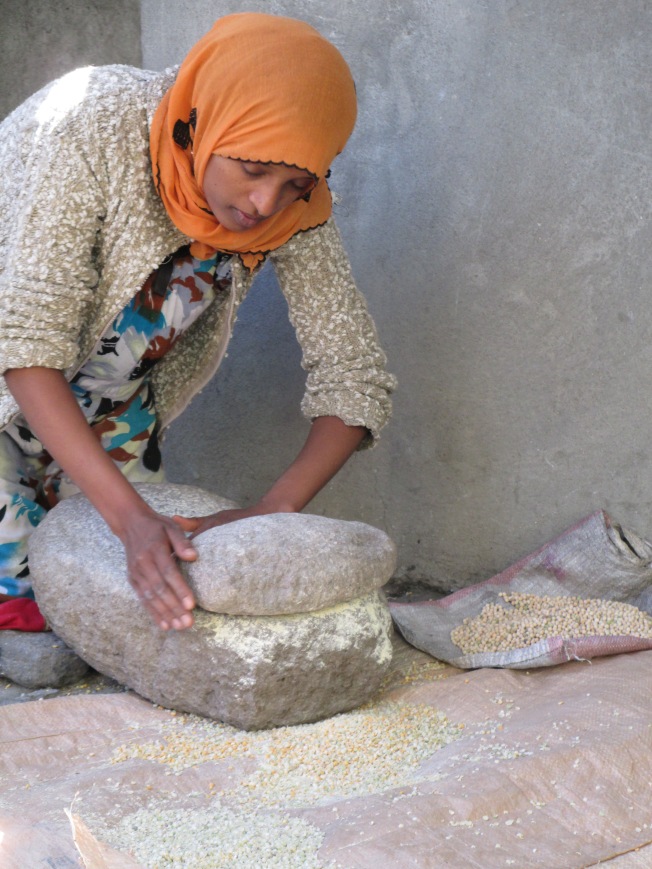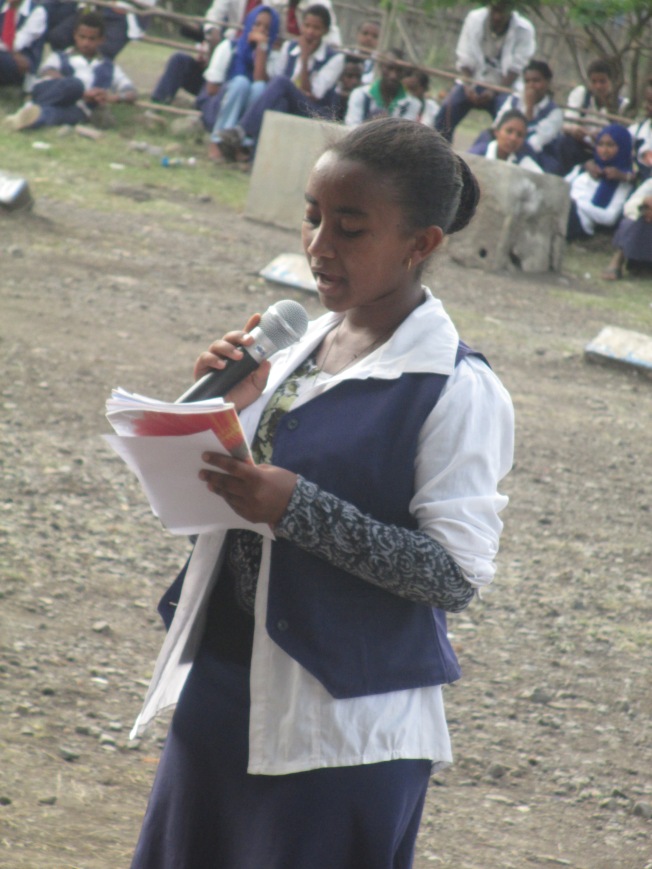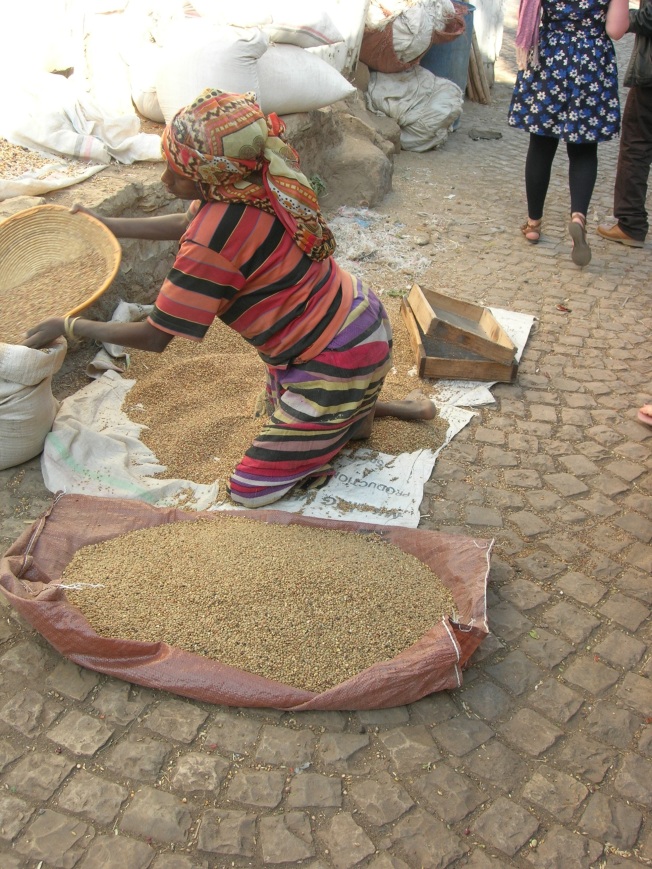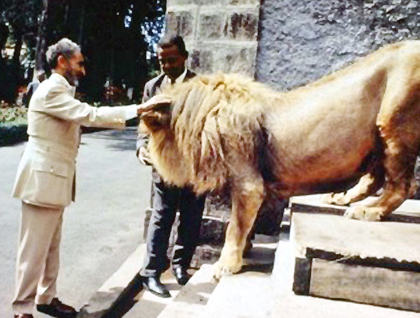For your information, Woldia is a place of no small significance.
A large bustling town, it has an estimated population of anywhere between 45-100,000 people depending on who you talk to. It is the capital of this zone and as a result has many zonal level administrative offices and functions. Host to a new University and a lower level College of Teacher Education which predates it, many school-going children also travel from surrounding rural areas to attend high-school and preparatory school here, returning home in the summer.
The town itself occupies a very strategic location being one of the few places in Ethiopia which stands at a major asphalted road junction and so also serves a critical transport function. To the North, the road leads to the Eritrean border, to the South Addis Ababa and on to Kenya, to the East Djibouti and to the West Sudan. As Ethiopia is a landlocked country, many goods which find their way into shops here and further into the continent originate from the port in Djibouti and have passed through Woldia in transit at some stage.
That being said, first (and subsequent) impressions of the town may be less favourable than that account. Here’s what the guidebooks say about my adopted hometown.
Lonely Planet:
“Woldia used to be a necessary overnight stop for public-transit travelers to Lalibela. Better roads and more frequent departures mean most people now arrive early enough to catch a connection that same day, but an unlucky few still get stuck here”.
Bradt Guide to Ethiopia:
“A medium-sized and largely unremarkable hillside town, Woldia sees a solid trickle of traveller through-traffic simply because it is the most popular springboard for road trips to Lalibela. It lies amongst pretty rolling hills, but otherwise it might most favourably be described as humdrum and amorphous, and more accurately perhaps as a tedious and scruffy urban scrawl.”
Meanwhile, Dervla Murphy’s description of arriving to Woldia sixty years ago seems as if it could have been written yesterday and is harsher still:
“This morning Waldia stank like a neglected public lavatory”.
All jokes aside, Woldia shares many of the same social and other problems as any rapidly growing, transit town in a developing country. Prostitution in particular is widely practiced and due to the high volume of passing “trade” and the practice of unsafe sex, the town is an acknowledged HIV/AIDS hotspot in the country. HIV/AIDS is an undeniable and desperately sad fact of life for many families in the town. Countless children have been orphaned here by the disease and many, otherwise healthy and vibrant, young persons have lost their lives too early.
Unemployment and under-employment especially among the youth appear critical, a problem which is exacerbated by the unceasing flow of jobless migrants from the rural surrounds. Addiction and resultant mental health issues and extreme poverty are plainly evident on the streets. Lack of appropriate employment for qualified persons is also a great challenge in Ethiopia generally and Woldia is no exception. Many young bajaj drivers in Woldia speak perfect English, University graduates with no other prospects.
This huge expansion of the urban population is presumably one of the reasons why the electricity and water supply are so notoriously unreliable here, a problem shared by many other Ethiopian towns and cities to a greater or lesser extent. At the time of writing the female dormitories in Woldia University are enduring a three week spell with no running water.
And in spite of it all, life goes on here as best as it can, amidst the fumes and the dust in this truck-stop town. In fact, notwithstanding the difficulties here, we find we have much to celebrate in Woldia these days and it has been my pleasure to witness so much positive change in the town over the past two years.
The opening of the University in itself is a momentous development in the life of the town. Located at a distance of 5 kms from the town, while the campus itself could not yet be called beautiful, it is situated in a very picturesque location, nestled at the foothills of the mountains. Recently there have been reports of an unidentified large animal killing hyenas around the University perimeter. Whether this is in earnest or an attempt to curb courting couples and keep the students away from the more unsavory elements of the town at night remains to be seen! The campus itself is expanding, seemingly exponentially, and parts of it are becoming prettier. This ongoing expansion is creating great employment in construction and administration as well as teaching and learning positions. There is now also a café for teachers and an internet room which works when there is electricity.
The influx of 7,000 third level students and up to a thousand academic and non-academic staff must be linked I think to the development of better services in the town of late. Within the last few months a “luxury” bus service has begun from Woldia to Addis, making the 10-11 hour journey far more comfortable and generally endurable. Several new half decent cafes have opened, some even touting free wifi availability. Invariably it doesn’t work but even the presence of the signs inspire hope for the future. Like much of the rest of the country the town is experiencing a boom in construction; both retail and residential units, many of the latter condominiums or “condom houses” as one of my colleagues hilariously dubs them! The half-finished buildings lining the streets may give a post-apocalyptic air to the town but most observers are unperturbed, like the wifi signs the unfinished upper stories are hopeful in themselves.
At first, I didn’t know what it was, it seemed to me to be some type of Marian shrine encased in glass but on closer inspection, I saw it was an ATM in Woldia, encased in a perspex box on the path! For the first few months, it was for decorative purposes only, people would come invariably just to look, but lately it has become operational and it is certainly a rush to hear the trill of the notes being counted in the machine while observing the great unwashed masses in the bank vying to get served at the counter.
Next, to matters of soccer. Woldia Sports Club, the local football team, have recently been promoted to the Ethiopian premier league! We played our first match two months ago (lost 6:1, but we drew the second one) and the sports field in the town has had a rather fetching makeover.
Sticking to a football theme, did you know Ethiopia has a billionaire? Dr Sheikh Mohammed Hussein Al Amoudi (his actual name) is the third richest man in Africa and he just so happens to be a Woldia native, if you can believe that. Al Amoudi has many investments in Ethiopia and is considered to be a very generous man. His latest venture is undertaking to build a massive state-of-the-art sports stadium in Woldia with a mooted capacity of 80,000 people. Where the spectators will come from is anyone’s guess but it has certainly created a lot of temporary employment in the town and above all it is exciting.
Sometime next year we are also eagerly anticipating the arrival of a Woldia to Addis Ababa railway. The actual stop will be some 20 kilometres or so to the East of us but we are told it will be named Woldia. Details are sketchy but whether it will be a freight train or mixed passenger use it is yet another welcome development.
There are other perks to life in Woldia, one thing I do enjoy is the amazing transport system. Stick your hand out onto the road anytime from 5 in the morning til well after dark in the evening and several of these blue donkeys will be crashing into each other in an attempt to take you wherever you want to go for a tiny fee.
So, there you have it: the good, the bad and the ugly of this, at first (and second) glance, charmless town.
On this day two years ago, I left that other rough diamond, Clonmel, for Woldia and yesterday, I said my final teary goodbyes to friends and neighbours here.
- Hannah and me; Hannah is the post-woman in Woldia and has been doling out yeer packages to me for two years 🙂
- Shell, Me and Eyerusalem
- Nati Mulugeta and Shelley
- Sentimental picture of me at the Lal Hotel, my refuge, quiet, not much hassle, serves beer and recently started free wifi 🙂
- Zenebe, Me and Eyerusalem
- Fikru and me ❤
- Abi Habtamu and Mita Seamus, looking cool 🙂
- Abebu, Mulu, Me and Amina
- Mehalit, Me, Abi Habtamu and Abebu
- Nati, Me and Mohammed
- Mohammed and Me
It has been uncomfortable enough for me here at times so that I am really looking forward to going home. There are lots of aspects of life here that I will not miss but it has also been such a vibrant, colourful and interesting life and there are many, many things that I will miss too.
I will miss my crazy neighbours and the staff at the University and also when I come to think about it…the strains of the orthodox hymns on the air and the distant muffled beating of ceremonial drums on holy days, the Muslim call to prayer during the day, the women by the side of the road selling roasted maize and fresh hot boiled sweet potato. Hoards of kids in their brightly-coloured uniforms traipsing off to school. Donkeys, sheeps, camels and cows vying with pedestrians and vehicles for space on the roads of a market day. The surrounding mountains are breath-taking if you remember to lift your head up from the grim urban scene around you to look at them; brown birds of prey punctuate an otherwise immaculate sky-blue canvas. And the stars at night! So many stars!!!
“But the world is always beautiful. When it’s seen in full retreat.” 😉
